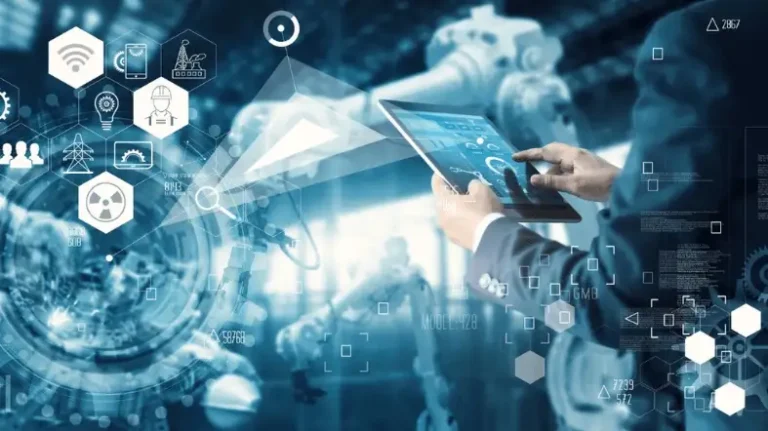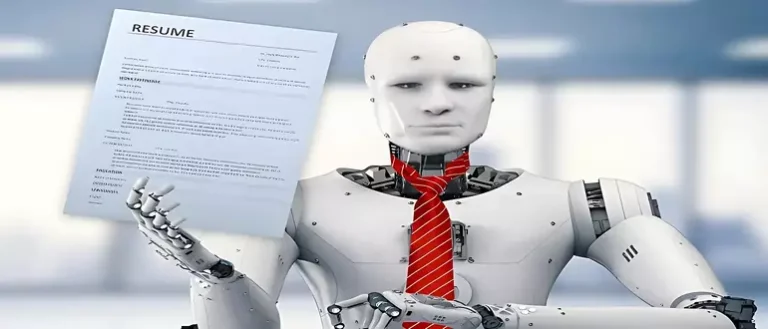Will robots and algorithms soon replace skilled workers in the jobs that they have traditionally filled?
In this blog post, we will delve into this thought-provoking question and explore the potential implications of AI on tech jobs.
We’ll also cover the following:
- How are tech guys able to stay relevant with AI
- Which Top Tech Jobs Will AI Impact Most?
- Pros and cons of AI on tech jobs
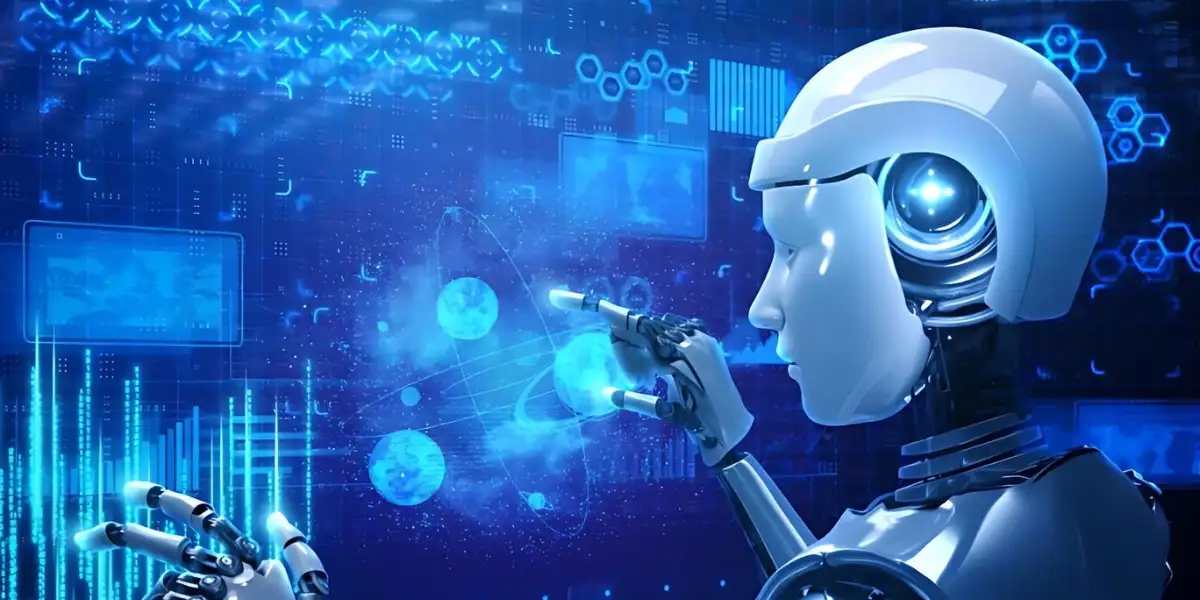
Will AI Replace Tech Jobs?
No, AI is not likely to replace all tech jobs, but some routine and repetitive tasks, such as data entry and basic programming, may be automated.
A net gain in employment is anticipated as a result of AI, which is also predicted to create new industries and occupations.
In order to remain competitive in the shifting employment market, workers may need to modify their abilities.
What is the impact of AI on tech jobs?
Automation of routine tasks:
The automation of ordinary work is one of AI’s most significant effects on tech jobs. AI enables machines to carry out repetitive jobs considerably more quickly and effectively than people.
Since machines can already perform duties like data entry, processing, and analysis, automation has already had an impact on employment in sectors like manufacturing, customer service, and finance.
For instance, chatbots can handle straightforward client questions and requests, freeing up customer support agents to concentrate on more complicated problems.
Changing skill requirements:
The qualifications needed for tech employment are shifting as AI advances. Programming, data analysis, and software development are still in demand, but AI and machine learning are expanding.
These include knowledge of neural networks, data science, and natural language processing.
For instance, in order to create apps with AI, a software developer may now need to have a fundamental understanding of machine learning techniques.
Impact on white-collar jobs:
Contrary to what many people think, white-collar employment, particularly those in the computer sector, are not immune to the effects of AI.
The economic impact of AI is more likely to be felt in white-collar positions with greater educational requirements and better remuneration, said a Brookings Institution paper.
For instance, AI-powered chatbots and virtual assistants may now complete duties that were previously completed by administrative employees, such as scheduling meetings, booking flights, and even producing reports.
Emerging job roles:
While AI is undoubtedly replacing some jobs, it is also creating new job roles.
According to a report by the World Economic Forum, AI and machine learning specialists, data analysts, and digital transformation specialists are the most prominent emerging roles.
For example, companies are now hiring AI and machine learning specialists to develop and implement AI-powered solutions that can help automate tasks and improve business operations.
How Can Human Workers Adapt To The Changes Brought About By AI In Tech Jobs?
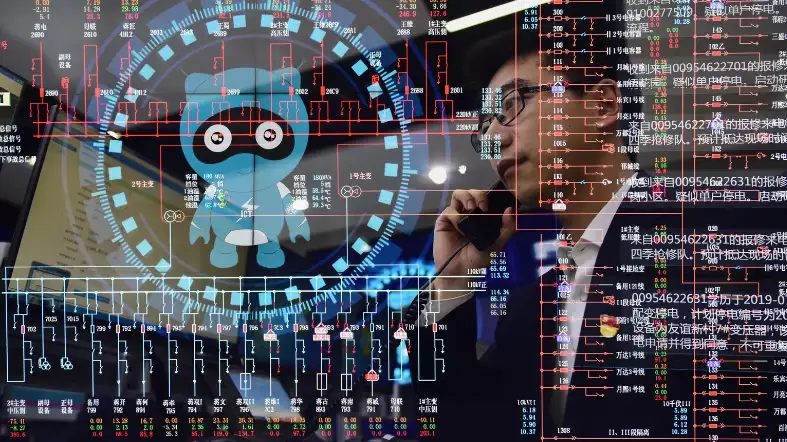
Keep Current on AI Trends and Developments:
Being up to date on the most recent AI trends and advances is the first step in adjusting to the changes brought about by AI in IT occupations.
This includes reading publications, watching conferences, and taking part in webinars about developments in AI.
Workers can stay ahead of the curve and foresee changes before they occur by doing this.
Be open to lifelong learning.
The capacity to learn and adapt is essential in the age of AI. Stay open-minded and dedicated to lifelong learning.
To increase your expertise and stay current with changes in your sector, look into online courses, workshops, and professional communities.
Upskill and Reskill
To adapt to AI-driven changes, invest in upskilling and reskilling. Identify the skills in demand in your industry and seek opportunities to develop them.
For example, if AI is being used for data analysis, consider learning data visualization techniques or data storytelling to present insights effectively.
Look for online courses, certifications, or even internal training programs offered by your organization to acquire new skills.
Cultivate Soft Skills
While AI handles technical tasks, soft skills become increasingly valuable. Communication, collaboration, problem-solving, and adaptability are highly sought after.
Sharpen your interpersonal skills to work in cross-functional teams effectively and to bridge the gap between AI and human workers.
Develop your emotional intelligence to excel in roles that require empathy and understanding.
Embrace Collaboration with AI
Instead of viewing AI as a competitor, embrace it as a collaborative partner. Seek ways to leverage AI’s capabilities to enhance your work.
For example, in marketing, AI can help with data-driven customer segmentation, allowing you to tailor campaigns more effectively.
Learn how to work with AI tools and platforms to leverage its strengths and make your job more efficient and impactful.
Develop Problem-Solving Skills:
The ability to solve complex problems is a crucial skill in the AI-driven workplace. Workers must develop problem-solving skills by learning to analyze data, identify patterns, and extract insights.
For example, a marketing analyst might use AI to analyze consumer data and identify patterns in consumer behavior.
Adapt Your Role
As AI takes over certain tasks, it’s important to adapt your role accordingly. Be proactive in identifying new opportunities and areas where your human skills can make a difference.
This could involve focusing on strategic decision-making, creative problem-solving, or customer relationship management. Embrace new responsibilities and demonstrate your ability to add value in areas that require human judgment and expertise.
Remain Adaptable:
AI technology is constantly evolving, and workers need to be adaptable to keep up with the changes.
Workers should be willing to learn new skills and be open to new challenges that come with AI.
For instance, an HR professional might learn how to use chatbots to improve the recruitment process.
Develop a Growth Mindset
Adapting to changes brought about by AI requires a growth mindset. Embrace challenges, learn from failures, and be open to feedback.
Recognize that continuous improvement and agility are essential in a rapidly evolving landscape.
Embody a growth mindset by seeking new challenges, embracing change, and constantly striving for personal and professional development.
Stay Agile and Flexible
In the era of AI, adaptability is key. Be open to change and be willing to embrace new technologies and ways of working.
Stay informed about emerging trends and be prepared to pivot when necessary.
Develop the ability to quickly learn new tools and technologies as they emerge, ensuring that you remain relevant and valuable in your field.
Top Tech Jobs Are Most Likely To Be Impacted By AI?
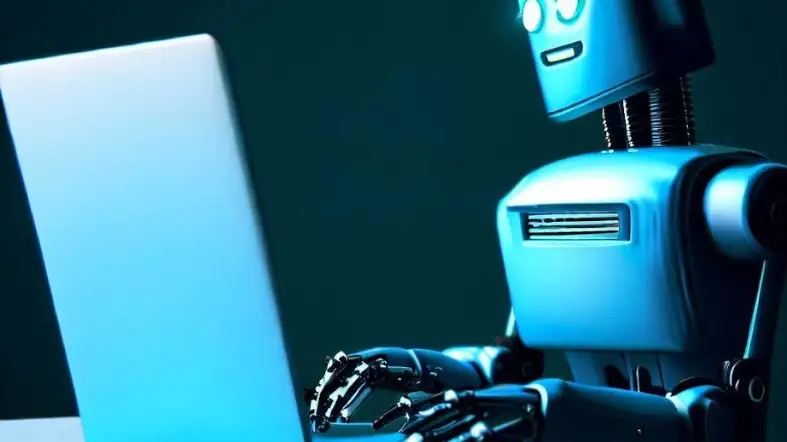
Software Development
AI has already started to impact software development, and this trend is expected to continue.
With the emergence of AI-powered tools and frameworks, developers can now automate various aspects of the software development lifecycle.
Tasks such as code generation, bug detection, and even software testing can be partially automated using AI.
While this doesn’t eliminate the need for software developers, it does change the nature of their work.
Developers will need to adapt by acquiring AI and machine learning skills to stay relevant in this evolving field.
Data Analysis and Data Science
Data science and analysis depend on AI. AI can analyze massive volumes of data, find patterns, and draw conclusions. More advanced AI algorithms can analyze more complex data.
Data cleansing and statistical analysis can be automated. Data analysts and scientists will be needed to evaluate and validate AI-generated findings.
These specialists must focus on sophisticated model development and experiment design.
IT Support and Helpdesk
AI is revolutionizing the field of IT support and helpdesk services. With the advent of chatbots and virtual assistants, many routine support tasks can now be handled by AI systems.
Chatbots can interact with users, troubleshoot common issues, and provide basic technical assistance.
However, complex and specialized problems will still require human expertise.
IT support professionals will need to adapt by developing skills in AI systems and focusing on providing specialized support that goes beyond what AI can handle.
Cybersecurity
AI benefits and threatens cybersecurity. AI can detect and prevent cyberattacks, improving cybersecurity.
AI systems can detect unusual network traffic and prevent assaults. Hackers can utilize AI to launch complex cyberattacks.
Cybersecurity professionals must keep up with AI-driven cyber threats. This requires knowing attacker AI tactics and using powerful AI-based protection systems.
Robotics and Automation
AI is helping robots and automation advance industries. Robots can autonomously and efficiently do complicated jobs as AI algorithms improve.
This may affect manufacturing, logistics, and service jobs. Assembly line and warehouse workers may lose demand.
Robot programming, maintenance, and oversight will create new opportunities.
What Are Some Of The Potential Benefits Of AI In Tech Jobs?
Streamlined Automation
One of the most significant benefits of AI in tech jobs is streamlined automation.
AI-powered systems can take over repetitive and mundane tasks, freeing up valuable time for tech professionals to focus on more complex and creative endeavors.
For example, in software development, AI algorithms can automatically generate code based on predefined patterns and requirements.
This reduces the time and effort required to write code from scratch and allows developers to concentrate on designing innovative solutions.
Enhanced Data Analysis
Data analysis is a crucial aspect of many tech jobs, and AI brings significant advancements in this area.
AI algorithms can quickly process vast amounts of data, identifying patterns, trends, and insights that would be challenging for humans to detect.
This capability empowers data scientists and analysts to extract valuable information from complex datasets efficiently.
For instance, in cybersecurity, AI can analyze network traffic, identify suspicious activities, and detect potential security threats in real time, helping organizations respond promptly and effectively.
Improved Decision Making
AI systems have the potential to enhance decision-making in tech jobs by providing data-driven insights and recommendations.
By analyzing historical data and real-time information, AI algorithms can assist professionals in making informed decisions.
For instance, in IT operations, AI can monitor system performance, identify bottlenecks, and suggest optimization strategies.
This empowers tech professionals to make proactive decisions based on accurate information, leading to improved efficiency and productivity.
Personalized User Experiences
In today’s tech-driven world, delivering personalized user experiences is paramount.
AI technologies, such as machine learning and natural language processing, enable tech professionals to create personalized interfaces, chatbots, and recommendation systems.
For example, AI-powered chatbots can understand user queries, provide instant responses, and offer tailored recommendations based on individual preferences. This level of personalization enhances user satisfaction, engagement, and loyalty.
Enhanced Problem Solving
AI systems are excellent problem solvers, capable of tackling complex challenges in tech jobs.
By analyzing patterns and historical data, AI algorithms can identify potential issues, predict outcomes, and propose solutions.
For instance, in software testing, AI can automate the detection of bugs and suggest possible fixes, speeding up the debugging process.
This enables tech professionals to troubleshoot problems more efficiently and deliver high-quality products and services.
What Are Some Of The Potential Drawbacks Of AI In Tech Jobs?

Potential Human Job Loss
One of the biggest drawbacks of AI in tech jobs is that it could lead to potential job loss for humans.
For instance, AI can automate certain tasks, rendering them unnecessary for humans to perform.
This may result in the displacement of human workers who were previously responsible for carrying out those tasks.
An example of this is seen in manufacturing, where AI-driven robots can carry out repetitive tasks with more precision and speed, reducing the need for human workers.
Costly Implementation
Implementing AI technology in tech jobs can be costly. The development and maintenance of AI systems require skilled professionals, which can be expensive to hire. Additionally, the hardware and software required to run AI systems can be costly.
This means that smaller businesses or startups may struggle to adopt the technology, giving larger companies an advantage.
Lack of Emotion and Creativity
Another potential drawback of AI in tech jobs is that AI systems lack human emotion and creativity.
This means that they may not be able to understand complex problems or make intuitive decisions like humans.
For instance, AI may struggle to make decisions based on context and empathy in customer service. This lack of emotional intelligence can lead to negative experiences for customers, which could ultimately harm a business’s reputation.
Data Bias
AI systems rely on data to learn and make decisions. If the data used to train AI systems is biased, the systems themselves can be biased too.
This can lead to discrimination against certain groups of people or perpetuate existing biases in society.
For instance, if an AI system used to hire new employees is trained on biased data, it may discriminate against women or minorities.
Overreliance on AI
Another potential drawback of AI in tech jobs is an overreliance on technology. If humans become too reliant on AI, they may lose the ability to perform certain tasks themselves.
This could lead to a lack of critical thinking skills or the inability to troubleshoot problems that arise with AI systems.
It is important to remember that AI is a tool, and humans should continue to develop their own skills alongside the technology.
FAQs
Which Tech Jobs Are Safe From Automation?
Some tech jobs that are considered safe from automation include cybersecurity professionals, project managers, and IT support specialists.
These roles require a high level of human expertise and interaction, making them less likely to be fully automated.
Can AI Completely Replace Human Expertise In Tech Jobs?
No, AI is not expected to replace human expertise in tech jobs completely.
While AI can assist with certain tasks, there will still be a need for human decision-making and problem-solving skills.
Additionally, many tech jobs require human interaction and communication, which cannot be fully automated.
Will AI Take Over All Tech Jobs In The Future?
No, AI is not expected to take over all tech jobs in the future. While some tasks within tech jobs may be automated, there will still be a need for human expertise in many areas.
Additionally, the development of AI is expected to create new job opportunities in the tech industry.
Conclusion:
AI will affect tech jobs, but technical advances have always created new opportunities and transformed industries.
AI can automate jobs and expand human capacities. We should embrace AI as a strong tool that can boost productivity and allow us to focus on more sophisticated, creative, and important work.
We must adapt, upskill, and use our human traits to stay relevant in the tech economy.
AI and tech jobs are not a zero-sum game but a dynamic terrain where humans and robots can work to create an inventive and inclusive future.


